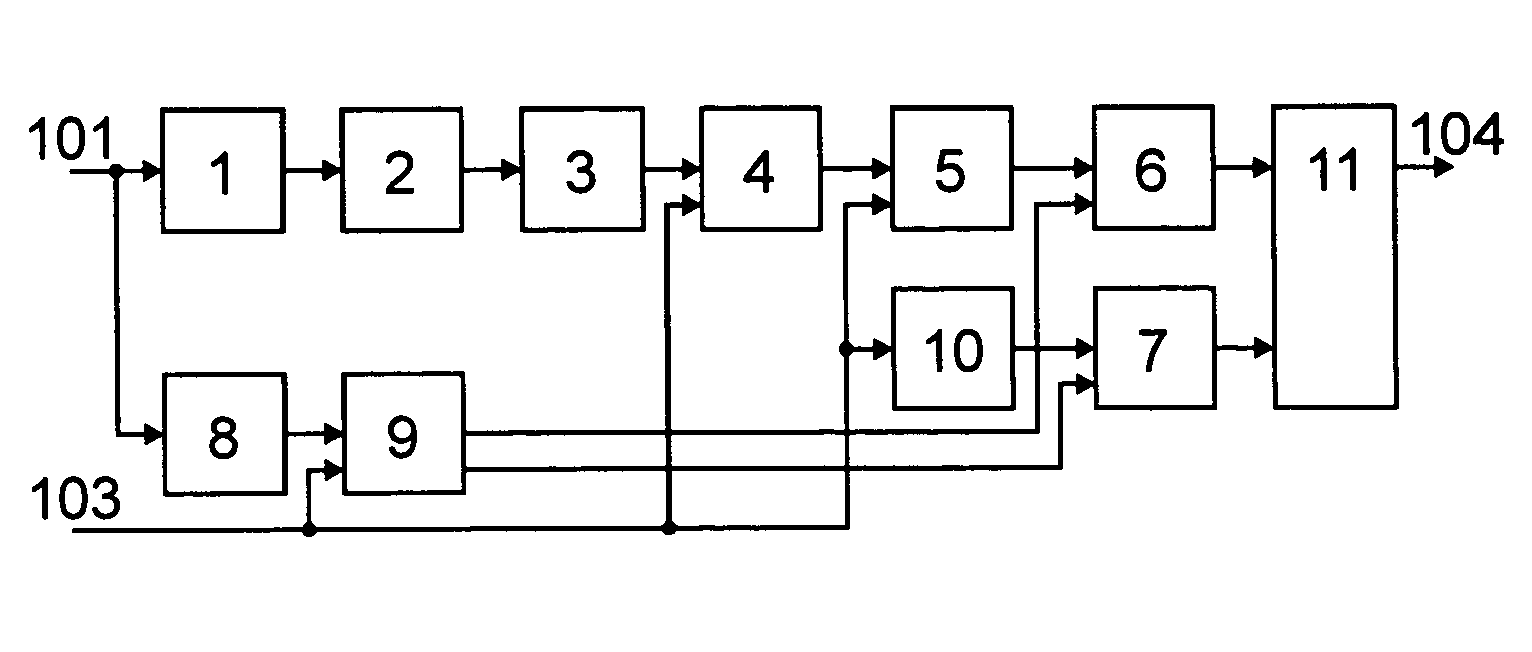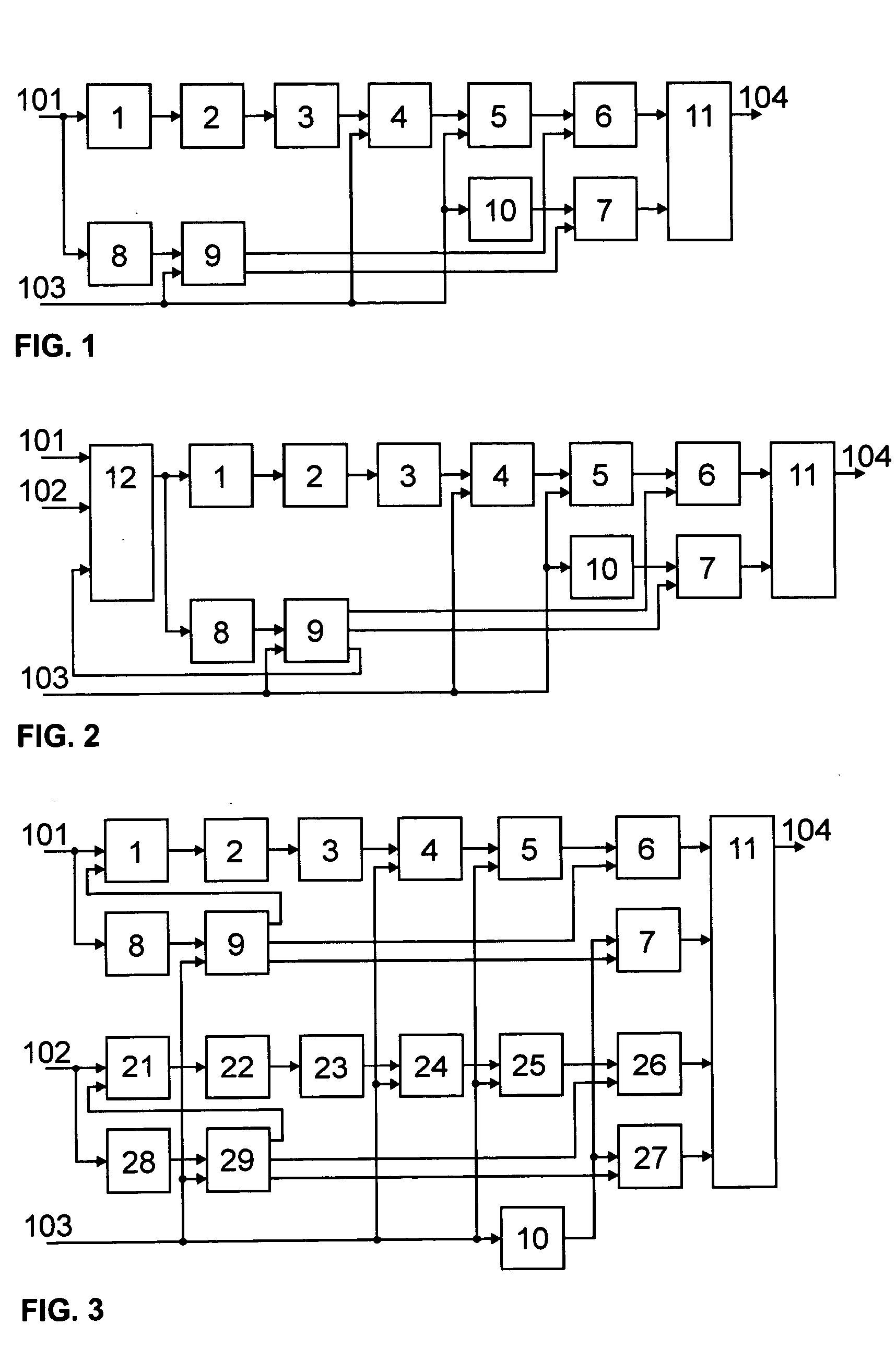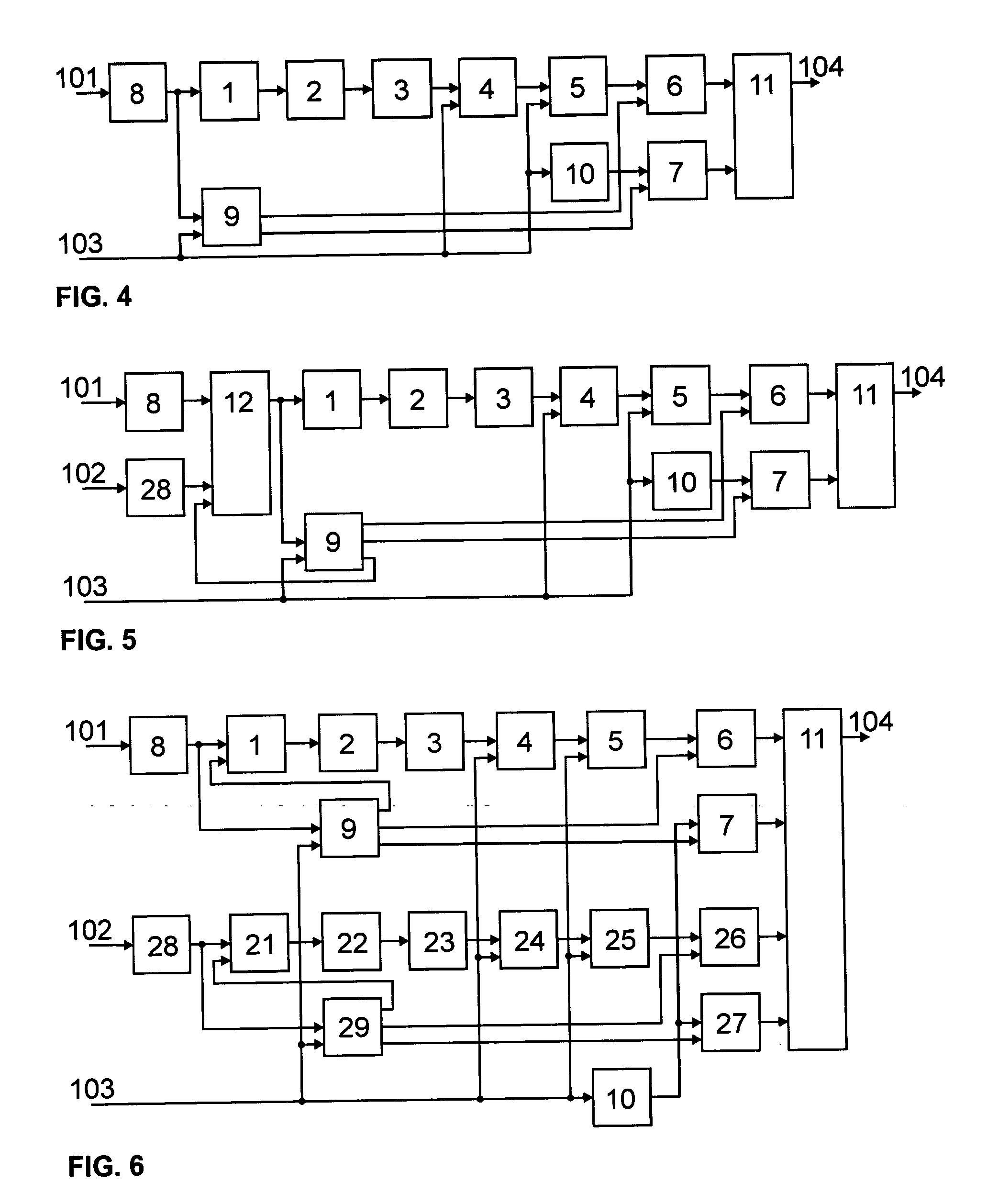Time interval measurement device
a time interval measurement and time interval technology, applied in the field of time interval measurement devices, can solve the problems of limited accuracy, mainly limited, and the resolution of this method given by the reference clock frequency, and achieve the effects of high accuracy, unlimited dynamic range and resolution, and high accuracy
- Summary
- Abstract
- Description
- Claims
- Application Information
AI Technical Summary
Benefits of technology
Problems solved by technology
Method used
Image
Examples
Embodiment Construction
The devices in the FIG. 1, FIG. 2, and FIG. 3 serve for measurement of time interval between two pulse signals that are identical or similar in shape, but may have different amplitude. They may originate, for instance, from a particle detector, a photo-detector, or a radio receiver detector.
FIG. 1 shows an example of the first basic configuration of the time interval measurement device. This device is made up of an input 101 of the pulse signal connected through a serial chain, which consists of a filter exciter 1, a surface acoustic wave filter 2, which is a bandpass filter with a finite pulse response, and an amplifier 3, to the analog input of a sampler 4. The output of the sampler 4 is connected to the analog input of an analog-to-digital converter 5, the output of which is connected to the digital input of a sample register 6. The output of the sample register 6 is connected to the first input of the computer 11. The input 101 is further connected through a voltage comparator...
PUM
 Login to View More
Login to View More Abstract
Description
Claims
Application Information
 Login to View More
Login to View More - R&D
- Intellectual Property
- Life Sciences
- Materials
- Tech Scout
- Unparalleled Data Quality
- Higher Quality Content
- 60% Fewer Hallucinations
Browse by: Latest US Patents, China's latest patents, Technical Efficacy Thesaurus, Application Domain, Technology Topic, Popular Technical Reports.
© 2025 PatSnap. All rights reserved.Legal|Privacy policy|Modern Slavery Act Transparency Statement|Sitemap|About US| Contact US: help@patsnap.com



